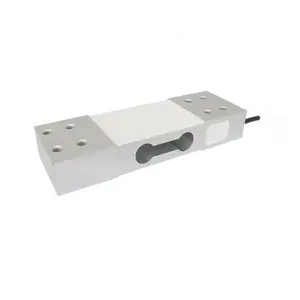Introduction to Weight Guides
Weight guides are essential tools commonly used in various industries, particularly fitness, sports, and health sectors. They provide users with valuable information regarding the weight and measurement of different objects, thereby optimizing performance, safety, and accuracy. Whether you are a fitness enthusiast or a professional athlete, understanding how weight guides function and their applications can immensely enhance your training regimen.
Types of Weight Guides
- Digital Weight Guides: These modern weight guides utilize advanced sensors to provide precise measurements. They often come equipped with additional features like memory functions and Bluetooth connectivity for data tracking.
- Mechanical Weight Guides: Typically seen in older gym settings, mechanical weight guides rely on a traditional scale system. These are reliable and do not require batteries, making them a popular choice for various users.
- Portable Weight Guides: Designed for users on the go, these compact devices are lightweight and easy to carry. They are perfect for outdoor enthusiasts or those attending work-related trips.
- Smart Weight Guides: Integrated with applications, smart weight guides can sync with your smartphone, allowing detailed tracking of your weightlifting goals and performance over time.
Applications of Weight Guides
- Fitness Training: Weight guides are extensively used in gyms and personal training sessions to help individuals measure and adjust their workout routines effectively.
- Nutrition Monitoring: They are also employed in food preparation and meal planning to track dietary intake, helping users maintain their health goals.
- Industrial Use: In manufacturing and logistics, weight guides ensure that weights of packages and materials are accurate for safe transportation and handling.
- Sports Performance: Athletes rely on these tools for strength training and competitions to ensure they meet weight categories and improve their performance metrics.
Features and Advantages of Weight Guides
- Precision Measurement: Most weight guides are designed to provide extremely accurate readings, allowing users to track progress meticulously.
- Easy to Use: User-friendly designs ensure that people of all skill levels can operate weight guides effortlessly.
- Diverse Range of Measurements: From lightweight to heavy industrial weights, there is a weight guide suitable for various applications.
- Durability: Many weight guides are constructed with high-quality materials, ensuring longevity and robust performance even in tough conditions.
- Data Tracking: Advanced models offer data tracking capabilities, helping users maintain and analyze their progress over time, which is especially useful for personal trainers and serious athletes.
- Cost-Effectiveness: Investing in a good quality weight guide can save costs in the long run, by reducing errors in measurement that could lead to wasting materials or inefficient workout results.




































